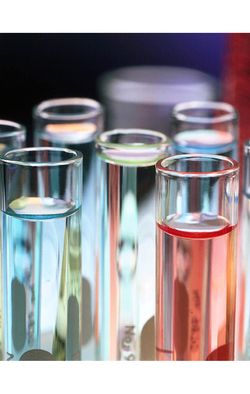Search: Site This Page
(405) 360-1552

| Ecovac Services / Technologies / |
Groundwater Remediation Treatability Studies

EcoVac Services customizes each groundwater remediation design in a site-specific manner through the use of treatability studies. The potential success of any groundwater remediation effort will vary due to the distinctive characteristics of each site. These various characteristics include: lithology; hydrogeology; the physico-chemical characteristics of the contaminant; geochemistry; groundwater chemistry and a variety of other factors. EcoVac Services scrutinizes the exceptional features of each site in an effort to achieve an optimal groundwater remediation outcome. Our state-of-art in-house research laboratory achieves optimization of our patented SURFAC®, SOLV-IT®, and ISCO-EFR® technologies. A treatability study is critical to the success of each groundwater remediation project as it provides a “blueprint” of the entire remedial event.
SURFAC® treatability studies identify and optimize the concentrations of the most compatible surfactant(s)/electrolyte(s) mixture, application volume, and congruence to the site groundwater and soil. The study will also quantify the maximum groundwater remediation removal of the contaminants while also anticipating adverse incompatibilities that may occur during field implementation. Surfactant phase behavior, geochemical compatibility, and one-dimensional column studies are included in a typical SURFAC® treatability study. Each treatability test requires sediment, free product, and groundwater collected from the specific site for groundwater remediation.
SOLV-IT® treatability studies are similar to SURFAC® treatability studies. However, a SOLV-IT® treatability study is geared more toward viscous NAPLs DNAPLs such as coal tar, creosote, crude oil, and bunker fuel. EcoVac Services formulates site-specific cosolvent biosolvent mixtures referred to as EFCTM. EFCTM is a blend of biodegradable vegetable solvent and nonionic surfactant which is designed to attain the maximum contaminant recovery for groundwater remediation from subsurface. The SOLV-IT® process is often combined with the SURFAC® process; thus two treatability studies are often commingled to mimic the field process. In a standard SOLV-IT® study, geochemical compatibility and one-dimensional column studies are included. Each treatability test requires sediment, free product, and groundwater collected from the specific site for groundwater remediation.
ISCO-EFR® treatability studies for groundwater remediation include the determination of total oxidant demand (TOD), contaminant efficacy, and oxidant longevity assessments. This type of study for groundwater remediation determines the minimal amount of oxidant for the cleanup objective and optimizes the performance of the oxidant. The concentrations of dissolved phase contaminants, oxidants, and other analytical parameters are periodically monitored. TOD and batch reaction tests are included in a standard ISCO-EFR® study. Each test requires sediment and groundwater collected from the specific site for groundwater remediation.
Our treatability studies are not restricted to our patented technologies. We are capable of conducting aerobic/anaerobic microcosm studies and optimization for in-situ heavy metal stabilization as well as other chemical dilemmas for environmental remediation.
EcoVac Services has its origins in innovative and creative thinking for environmental remediation. That creative thinking persists to the present. This innovation will continue into the future as we invest in the training of our personnel.
EcoVac Services hires creative minds to facilitate groundwater remediation. Our personnel is trained and expected to seek out cutting edge cost-effective solutions to our clients’ groundwater remediation challenges. Our goal is to cultivate creative thinking in our staff.
This approach to groundwater remediation allows EcoVac Services to offer pay for performance based contracting for our clients’ groundwater remediation needs. The cost of these guaranteed services compares favorably to, and sometimes is less costly, than non-guaranteed traditional environmental groundwater remediation processes.